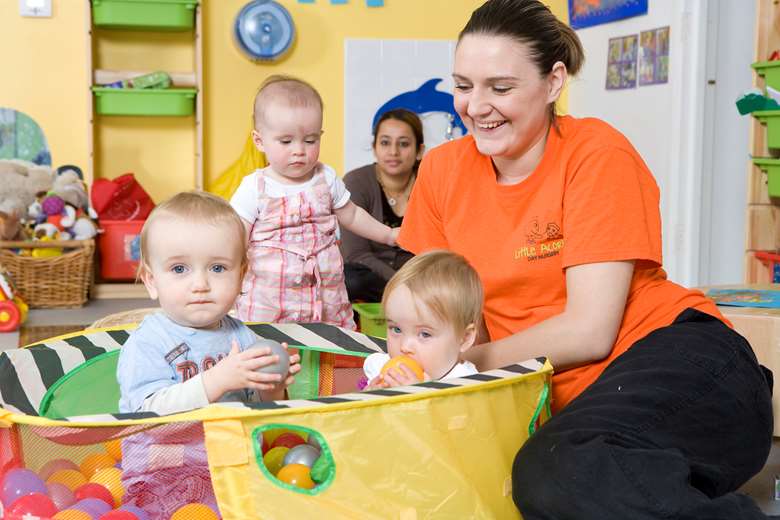Government considers allowing co-habiters of sex offenders to work in nurseries
Jess Brown
Friday, May 6, 2016
The government is considering changing regulations so that people who live with a sex offender can get a childcare job in nurseries and schools.

Currently, childcare workers can be disqualified because someone who lives or works in their household has been cautioned for, or convicted of, certain offences. Offences that currently lead to an automatic "bar by association" include sex offences, murder and kidnapping.
However the Department for Education (DfE) is considering changing the rules for childcare workers based in nurseries and schools. The regulations would remain the same for childminders working from home.
A consultation launched today suggests that one option is removing "disqualification by association" in schools and non-domestic settings. The DfE has said there is no evidence the change would "present an unacceptable risk to children".
"As a result of the current arrangements, there are a significant number of childcare workers disqualified from working in childcare because someone who lives or works in their household has committed a relevant offence," the consultation document states.
"This provision is widely considered to be unfair."
Currently those who are barred by association can appeal to Ofsted for the disqualification to be waived. The DfE says that for the period October 2014 to September 2015, Ofsted declined none of the 1,148 waiver applications it received from childcare workers in schools in cases of disqualification by association.
In the same period, it received a further 249 applications from childcare workers in non-domestic registered settings and declined just two.
"Accordingly, Ofsted’s management information appears to support the view that a significant number of workers who present no apparent risk to children’s safety are being unnecessarily disqualified and prevented from working in childcare," the consultation document states.
"On the basis of this, there would appear to be no evidence to suggest that removing the disqualification by association provision would present an unacceptable risk to children in schools."
Another option being considered is retaining disqualification by association but introducing a new right for childcare workers to make representations to Ofsted. This would mean employers would no longer have to suspend or redeploy affected staff while Ofsted considered an application for waiver.
“Employees within scope, who choose to take up the new right of making representations to Ofsted, would be able to continue to work in childcare," the consultation document states.
“These workers would not be disqualified until after they have had a chance to submit representations and then only if Ofsted’s review of those representations, determines that they should be disqualified.”
The third option being consulted on is retain disqualification by association, but reduce its scope, and introduce a right to make representations to Ofsted.
Purnima Tanuku, chief executive of the National Day Nurseries Association (NDNA), said the current legislation around disqualification by association is “very complicated and unclear”.
“Protecting children is paramount, so following consultation with our national policy committee, we would recommend option two of the consultation in which workers have a right to make representations to Ofsted before disqualification would take place,” she said.
“Nurseries must have robust safeguarding procedures that should ensure that all children are safe while these practitioners remain in situ. We urge the DfE to take a sensible, measured approach towards this issue that balances the needs of the child with a workable, practical solution for childcare providers."
Neil Leitch, chief executive of the Pre-school Learning Alliance, said he welcomes the proposals, but called for them to also be applied to childminders working from home.
“The current rules around disqualification by association can create significant and sometimes unnecessary challenges for early years providers, and so we warmly welcome the move to consult with the sector on a fairer regulatory system," he said.
"As with all early years issues, it is important that the wellbeing of the child is at the centre of any changes, and so it is important that the DfE balances this with the need for a more proportionate approach to this issue.
"We are disappointed, however, to see that the proposed changes apply only to schools and group settings, and not childminders. While we recognise that there are key differences between domestic and non-domestic settings, and that this will inevitably have an impact on the way that disqualification by association rules should be applied, this is not a reason to exclude childminders from the scope of the consultation completely.”
The consultation closes on 1 July.




